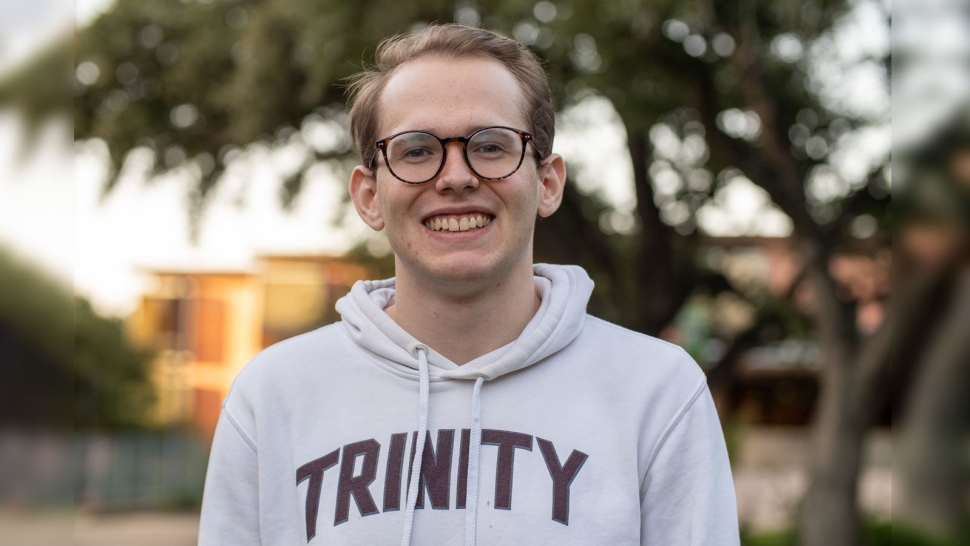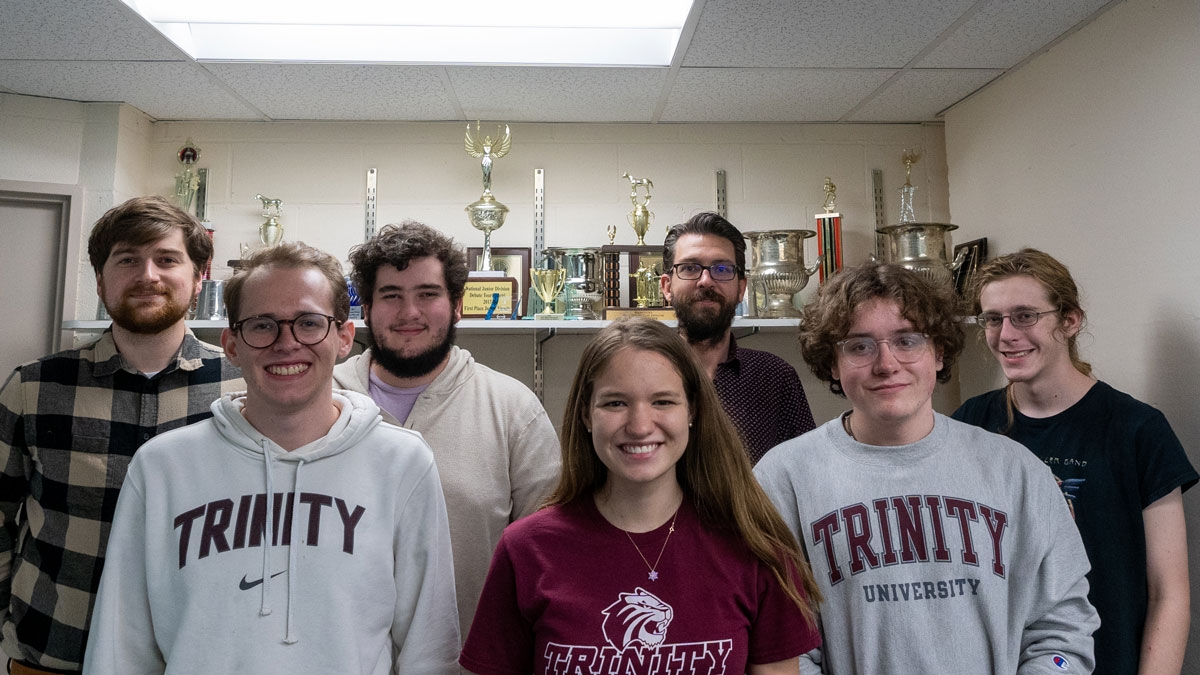Trinity University. November 8

Kenneth Nelson ‘23 knew he wanted to join a nationally relevant college debate program coming out of high school.
But Nelson, a political science and economics double major from Salt Lake City, Utah, also had a few other priorities: He wanted a debate program that offered opportunities for first-years, he didn’t want to get lost in the shuffle of a large team, and he needed a university with strong financial aid and scholarship opportunities.
“That’s why I decided on Trinity,” Nelson says. “It’s a smaller squad, there’s a much better coach-to-student ratio, and there’s a much bigger emphasis on hard work. The harder you work, you’ll get to go to better tournaments. At any experience level, if you want to do debate, Trinity’s debate team will help you contribute. As long as you give it the ‘college try,’ you will have the resources you need to succeed.”

Trinity’s debate program, housed inside the Department of Human Communication and Theatre, is built for students just like Nelson. It consistently fields teams that are competitive in national tournaments, boasts dedicated, supportive faculty members as coaches, and offers the Baker Duncan debate scholarship, all factors that Nelson said made Trinity a perfect choice.
“Paying for university was tricky for me because I have limited financial resources,” Nelson says. “That was a decisive factor in why I came to Trinity, because it was one of the few places that offered a combination of very good financial aid, and the Baker Duncan scholarship.”
This competitive, merit-based scholarship offers first-years with a talent for debate a renewable scholarship for participating in Trinity’s Debate program. And it’s just one of the many resources incoming debate students can rely on at Trinity—such as outstanding faculty support.
William Jensen, Trinity’s director of debate, and Nathan Rothenbaum, assistant director, have both had a major impact on Nelson’s trajectory with the debate team. Unlike many other schools, Nelson notes, they’re dedicated debate coaches, which means the pair provides more individual support to each member of Trinity’s team.

“Jensen is the mastermind of our shenanigans,” Nelson says. “When we’re preparing for each tournament, he’s not just reviewing our arguments, he’s examining the judges, and considering how our arguments are going to sound to them. He helps us adapt our arguments to be more successful.”
And Rothenbaum, Nelson continues, is masterful at helping the team hone in on research for each debate topic: “Nathan is very good at finding research we need. There will be times when you just can’t find any information on a topic, or don’t even know where to begin looking, but you can just go to him, and he’ll be able to point you in the right direction.”

Under Rothenbaum and Jensen, first-years who work hard will get noticed, and will get opportunities, Nelson says. This personalized support has made a clear difference for students like Nelson, who’ve enjoyed an unprecedented run of success during the past three-to-four years.
“When I came in as a first-year, our team was incredibly talented. We had a pair of (national) top-16 debaters. Our second year, we had one of our best years ever, and we got to the top-eight of the Northwestern tournament. We actually beat the team, Dartmouth, that ended up winning nationals that year,” Nelson says. “And while COVID-19 kind of shut down that year, we’re definitely rebuilding this year.”

As Nelson looks to the future, he says debate has played a positive role in all of his academic, personal, and professional trajectories.
“This sounds crazy, but joining the debate team long-term actually makes class easier,” Nelson says. “In political science and economics, I’m assigned reading by authors that I’ve already encountered through debate. I can just import that knowledge. Debate encounters so many topics that it makes you better at research. In class, you’re reading about hypothetical theories, and debate gives you a chance to apply those theories and concepts.”
There is a short-term trade off, Nelson admits: balancing classroom priorities such as tests and papers with traveling debate tournaments. But that’s a good problem to have.

“We get to travel to universities across the country for debate tournaments, which also means we get to go to the cities those universities are in,” Nelson says. “That means we’re in Boston, Chicago, where you can get good food, and go explore.”
And perhaps the best resource the debate program offers, Nelson explains, is your teammates. “College can be overwhelming at first, where it’s pulling you in different directions the minute you arrive,” he says. “Debate is good at giving you a group of friends right off the bat; they help you get acclimated to the university.”

